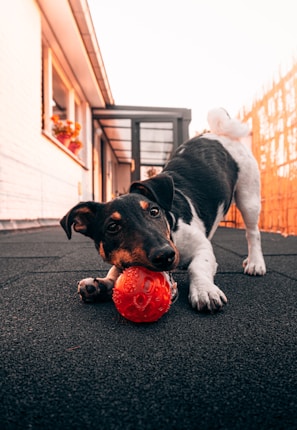Advocating for your dog - what does it mean?
We all hear about advocating for our dogs, but do we know what it actually means?
UNDERSTANDING DOGS
1/4/20243 min read


If I could, I would nominate the phrase "advocate for your dog" as the most used phrase in dog training recently. I do love it and use it a lot, yet, the more I talk to people, the more I realise that not everyone fully understands what it means. It will probably look different for each of you, but if I had to sum up what "advocating for your dog" means, I'd say it's thinking about what your dog needs first and foremost, even if it doesn't match your or society's expectations. It means going out of your way sometimes to ensure your dog's emotional and physical wellbeing. It's being a voice for those who can't talk, quite frankly. I used to encourage my clients to speak up for other dogs too when they can because once you learn their language, you can't ignore it, but let's start from our own dogs.


WHEN DO WE NEED TO ADVOCATE FOR OUR DOGS?
Every day for every dog, really. There's this false belief that it's only reactive dogs who need to be protected and advocated for. Or that a dog needs to have other behavioural issues and be in training in order for anyone to start thinking about speaking up for them. The reality is that even the "friendliest' and "happiest" dogs need someone who could notice their feelings and let other humans know what might not be appropriate in a certain moment. Take puppies, for example. They are cute, way too cute, I know and just like you, I could play with them endlessly. However, we're now learning to understand that, as puppy guardians, we are the ones who need to stop people if they're making our pup over aroused or remove the puppy from the situation if they are getting too tired. This is all still advocating for your dog.
1. Understand the canine body language. Learning their body language is one of the best things you can do for dogs. We tend to say "I wish my dog could talk", but we rarely understand that they do! (It's a curse and a blessing, really, because you see a lot of dogs put into situations that they wish they could escape). I cannot stress enough how many incidents could be prevented if only more people understood dog body language. I teach people to recognise stress signals in their and others' dogs, pups asking for space or getting too excited. When you know these signs, you can make decisions accordingly. Dog seems too tensed during the interaction? Give them space, allow them to calm down. Dog getting way too excited? Take a break, cool down before the unwanted behaviour starts.
2. Setting them up for success. I can't remember now how many times I said this but it's something neither me nor any other trainer will stop reminding you. In order to get results you need to let your dog succeed. You need to develop situational awareness and understand your dog's limits in each. If your dog is not able to walk calmly past another dog in a close proximity, avoid narrow streets until they're able to. If your dog gets too excited with lots of people being in the house, start by having one guest and maybe even meet them outside. Being proactive and preventing the rehearsal of unwanted behaviours is not avoiding the triggers forever, it's being in control of the amount and the intensity of them.
3. Being your dog's voice. Once you learn their body language and know their skillset, you are the only person that can tell this to the rest of the world. I'm sorry if it sounds harsh, but no one cares about your dog more than you. It's okay to say "no, you can't pet my puppy because we are in training" or "no, your dog can't say hi to mine because he's not comfortable with that". What I used to say to people that trained with me is that this one person might think you're rude for one minute and then forget or they might play with your puppy, hype them up and leave when you are going to be the one dealing with whatever consequences it brings. In saying that, I feel like the majority of people are really understanding nowadays, so you might be feeling worried for no reason!
4. Getting them ready for various situations. I truly think that training your dog and getting them familiar with the situations they will face in public is advocating for your dog. This could look like teaching them a U-turn, staying calm while you are talking to someone, checking in with you... all contributes to an easier tomorrow for your team.
Not sure where to start? Let me help!
HOW CAN YOU ADVOCATE FOR YOUR DOG?
Follow us
@Dog Trainer Sky | Sky Walkers Pack, 2024